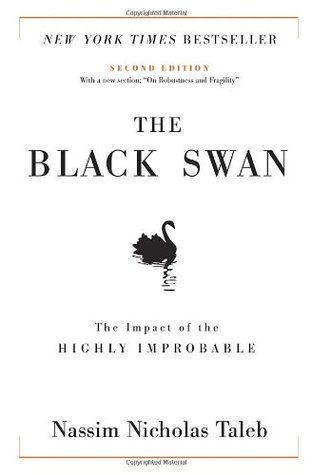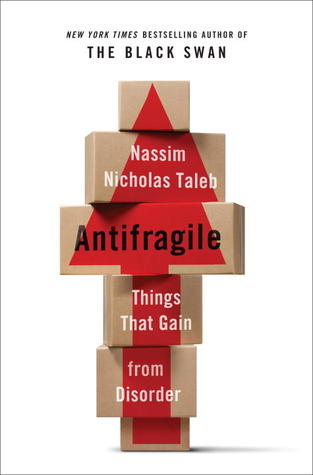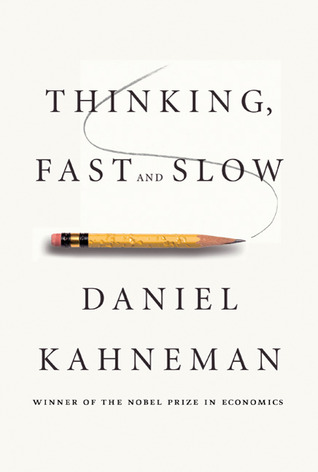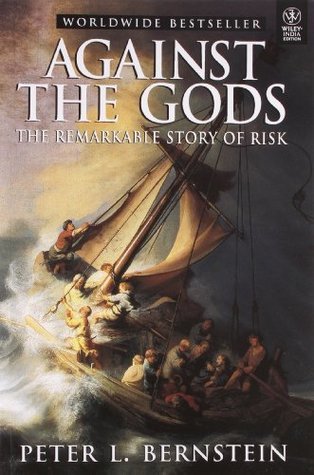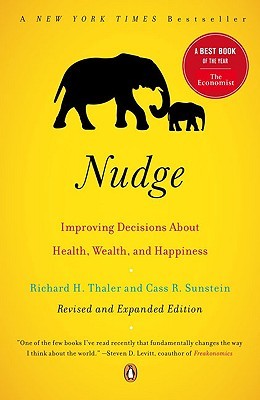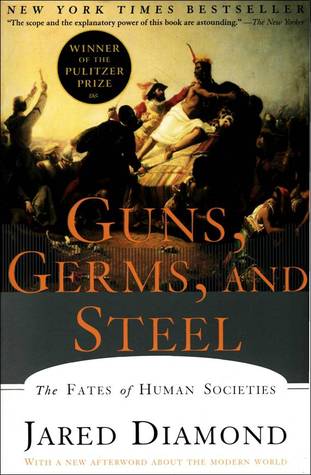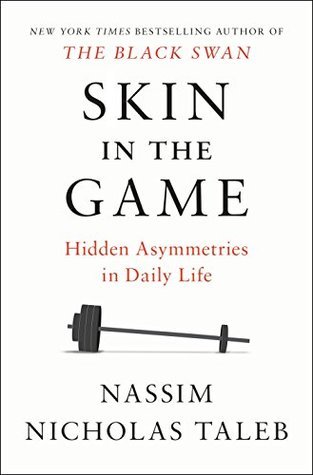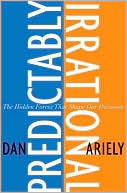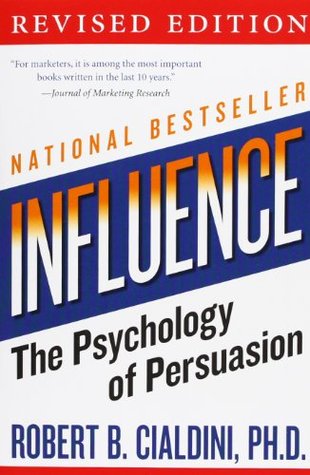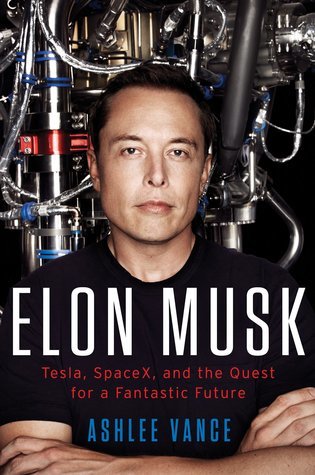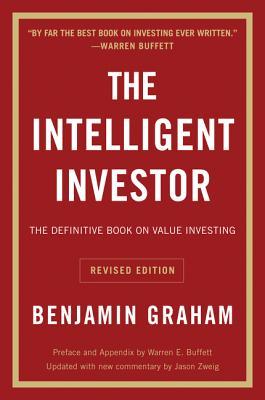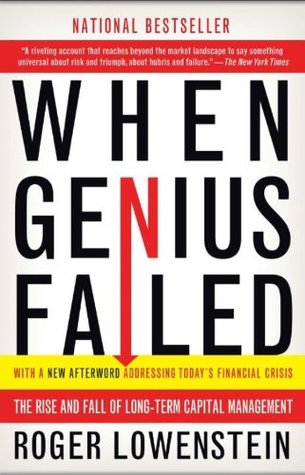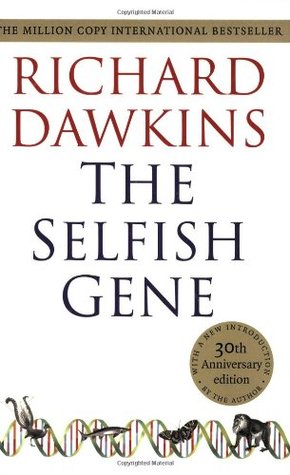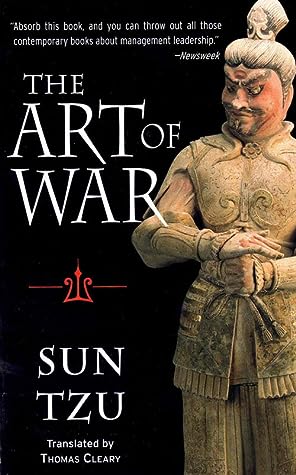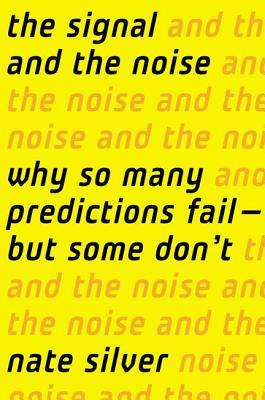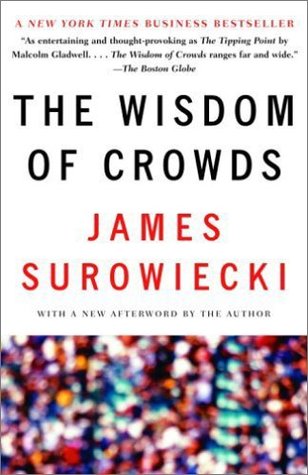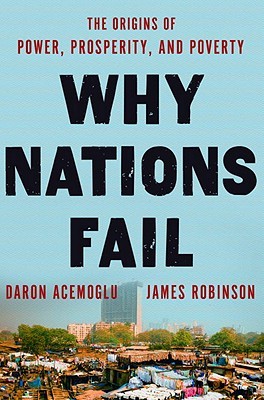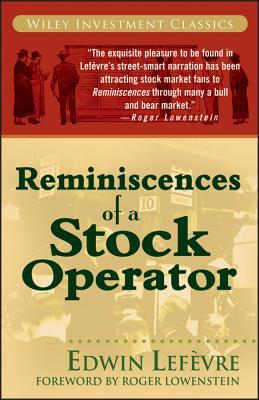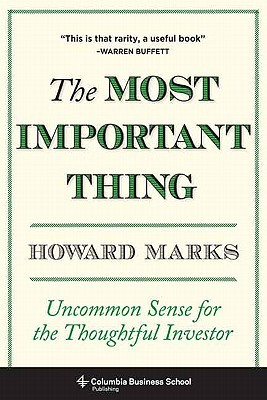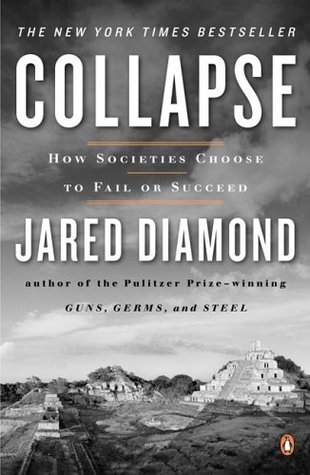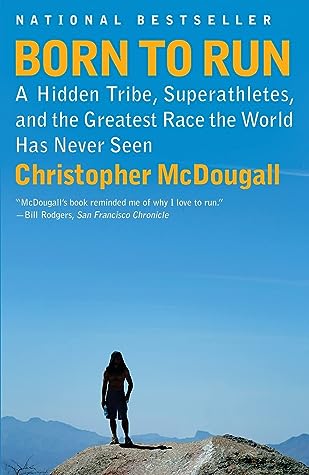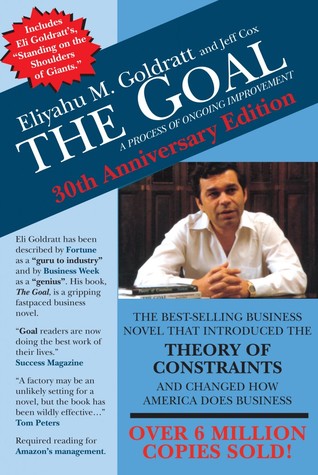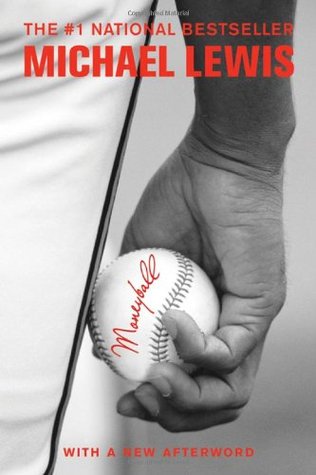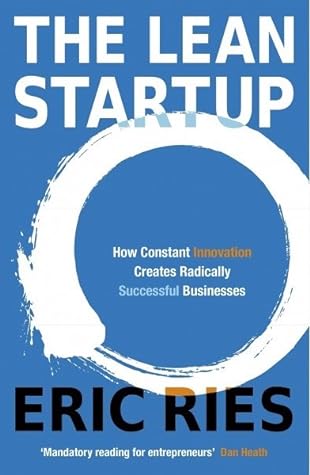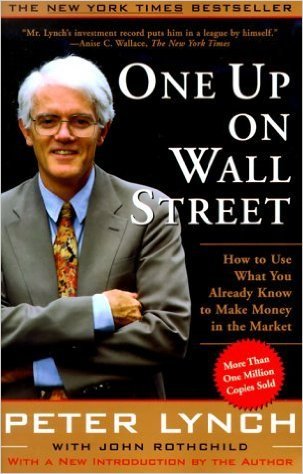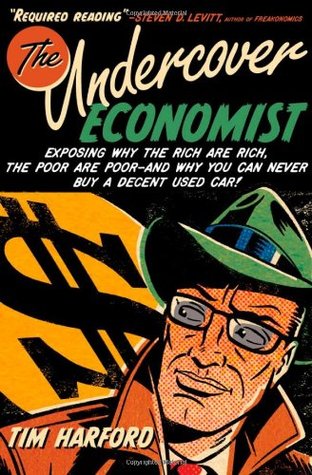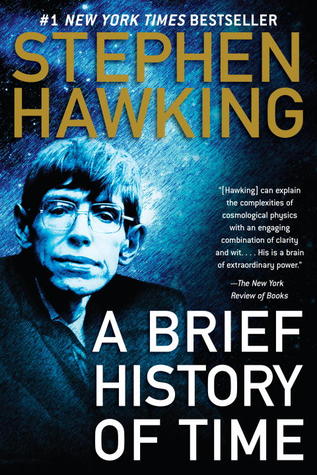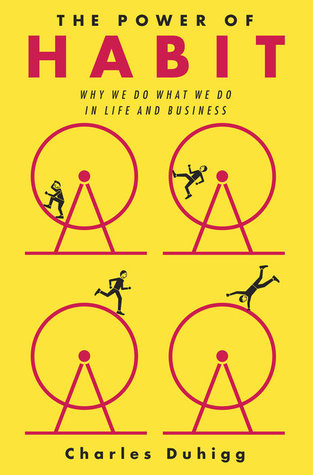Powered by a book like {foo}
Recommendations based on Fooled by Randomness: The Hidden Role of Chance in Life and in the Marketsby Nassim Nicholas Taleb
* statistically, based on millions of data-points provided by fellow humans
The Black Swan: The Impact of the Highly Improbable
by Nassim Nicholas Taleb
A study of the role of randomness in life, and how it can lead to unexpected events.
A black swan is a highly improbable event with three principal characteristics: It is unpredictable; it carries a massive impact; and, after the fact, we concoct an explanation that makes it appear ... (Goodreads)
Antifragile: Things That Gain from Disorder
by Nassim Nicholas Taleb
An exploration of how disorder and chaos can lead to strength and resilience.
From the bestselling author of The Black Swan and one of the foremost philosophers of our time, Nassim Nicholas Taleb, a book on how some systems actually benefit from disorder. In The Black Swan ... (Goodreads)
Thinking, Fast and Slow
by Daniel Kahneman
An exploration of the two systems of the mind, and how they influence decision-making.
In the highly anticipated Thinking, Fast and Slow , Kahneman takes us on a groundbreaking tour of the mind and explains the two systems that drive the way we think. System 1 is fast, intuitive, and ... (Goodreads)
Zero to One: Notes on Startups, or How to Build the Future
by Peter Thiel
A guide to launching a startup, exploring the power of entrepreneurship.
If you want to build a better future, you must believe in secrets. The great secret of our time is that there are still uncharted frontiers to explore and new inventions to create. In Zero to One, ... (Goodreads)
Against the Gods: The Remarkable Story of Risk
by Peter L. Bernstein
A history of risk, uncovering the science and mathematics behind decision making.
With the stock market breaking records almost daily, leaving longtime market analysts shaking their heads and revising their forecasts, a study of the concept of risk seems quite timely. Peter ... (Goodreads)
Nudge: Improving Decisions About Health, Wealth, and Happiness
by Richard H. Thaler
A groundbreaking exploration of how subtle influences can shape decisions and improve people's lives.
From the winner of the 2017 Nobel Prize in Economics, Richard H. Thaler, and Cass R. Sunstein: a revelatory look at how we make decisions,New York Times bestseller,Named a Best Book of the Year by, ... (Goodreads)
Guns, Germs, and Steel: The Fates of Human Societies
by Jared Diamond
Tracing the origins of human civilizations through the lens of geography, technology, and biology.
"Diamond has written a book of remarkable scope ... one of the most important and readable works on the human past published in recent years." Winner of the Pulitzer Prize and a national bestseller: ... (Goodreads)
Skin in the Game: The Hidden Asymmetries in Daily Life
by Nassim Nicholas Taleb
Taleb argues that people should have "skin in the game" when making decisions that affect others, and that asymmetries in risk and reward can lead to negative consequences.
From the New York Times bestselling author of The Black Swan, a bold new work that challenges many of our long-held beliefs about risk and reward, politics and religion, finance and personal ... (Goodreads)
Predictably Irrational: The Hidden Forces That Shape Our Decisions
by Dan Ariely
An exploration of why humans make irrational decisions, and how to overcome them.
Why do our headaches persist after taking a one-cent aspirin but disappear when we take a 50-cent aspirin? Why does recalling the Ten Commandments reduce our tendency to lie, even when we couldn't ... (Goodreads)
Influence: The Psychology of Persuasion
by Robert B. Cialdini
An analysis of the psychology of persuasion and how to use it to influence people.
Influence, the classic book on persuasion, explains the psychology of why people say "yes"—and how to apply these understandings. Dr. Robert Cialdini is the seminal expert in the rapidly expanding ... (Goodreads)
Elon Musk: Tesla, SpaceX, and the Quest for a Fantastic Future
by Ashlee Vance
A revealing look into the life and accomplishments of tech innovator Elon Musk.
Elon Musk, the entrepreneur and innovator behind SpaceX, Tesla, and SolarCity, sold one of his internet companies, PayPal, for $1.5 billion. Ashlee Vance captures the full spectacle and arc of the ... (Goodreads)
The Intelligent Investor
by Benjamin Graham
An in-depth guide to investing, providing strategies to become a successful investor.
More than one million hardcovers sold Now available for the first time in paperback! The Classic Text Annotated to Update Graham's Timeless Wisdom for Today's Market Conditions The greatest ... (Goodreads)
When Genius Failed: The Rise and Fall of Long-Term Capital Management
by Roger Lowenstein
The story of the hedge fund that almost brought down the financial system in 1998, and the hubris and greed that led to its downfall.
With a new Afterword addressing today’s financial crisis A BUSINESS WEEK BEST BOOK OF THE YEAR In this business classic—now with a new Afterword in which the author draws parallels to the recent ... (Goodreads)
The Selfish Gene
by Richard Dawkins
A study of evolutionary biology, exploring how genes act and how they impact behavior.
Inheriting the mantle of revolutionary biologist from Darwin, Watson, and Crick, Richard Dawkins forced an enormous change in the way we see ourselves and the world with the publication of The ... (Goodreads)
The Art of War
by Sun Tzu
Ancient Chinese military treatise outlining strategies for success in battle.
Twenty-Five Hundred years ago, Sun Tzu wrote this classic book of military strategy based on Chinese warfare and military thought. Since that time, all levels of military have used the teaching on ... (Goodreads)
The Signal and the Noise: Why So Many Predictions Fail—But Some Don't
by Nate Silver
An exploration of the art and science of prediction, examining why some predictions succeed while others fail.
Nate Silver built an innovative system for predicting baseball performance, predicted the 2008 election within a hair's breadth. He solidified his standing as the nation's foremost political ... (Goodreads)
The Wisdom of Crowds
by James Surowiecki
Examining the power of collective intelligence to solve problems, make decisions and drive innovation.
In this fascinating book, New Yorker business columnist James Surowiecki explores a deceptively simple idea: Large groups of people are smarter than an elite few, no matter how brilliant–better at ... (Goodreads)
Why Nations Fail: The Origins of Power, Prosperity, and Poverty
by Daron Acemoğlu
Examination of the economic and political forces that shape the success and failure of nations.
Brilliant and engagingly written, Why Nations Fail, answers the question that has stumped the experts for centuries: Why are some nations rich and others poor, divided by wealth and poverty, health ... (Goodreads)
Reminiscences of a Stock Operator
by Edwin Lefèvre
A classic financial story, recounting the life and trading success of a Wall Street stock market master.
The book can be divided into three parts: , In his 2008 book,, The Age of Turbulence, , Alan Greenspan called the book "a font of investing wisdom" and noted that quotes from the book such as "bulls ... (Wikipedia)
The Most Important Thing: Uncommon Sense for the Thoughtful Investor
by Howard Marks
A renowned investor shares his insights on successful investing, emphasizing the importance of risk management and contrarian thinking.
"This is that rarity, a useful book."–Warren Buffett Howard Marks, the chairman and cofounder of Oaktree Capital Management, is renowned for his insightful assessments of market opportunity and risk. ... (Goodreads)
Collapse: How Societies Choose to Fail or Succeed
by Jared Diamond
Study of past societies' successes and failures in terms of environmental, economic, and political decisions.
Brilliant, illuminating, and immensely absorbing, Collapse is destined to take its place as one of the essential books of our time, raising the urgent question: How can our world best avoid ... (Goodreads)
Factfulness: Ten Reasons We're Wrong About the World – and Why Things Are Better Than You Think
by Hans Rosling
A data-driven book that challenges common misconceptions about the world and presents a more accurate, optimistic view of global progress.
Factfulness:, The stress-reducing habit of only carrying opinions for which you have strong supporting facts. When asked simple questions about global trends— what percentage of the world’s ... (Goodreads)
Born to Run: A Hidden Tribe, Superathletes, and the Greatest Race the World Has Never Seen
by Christopher McDougall
A thrilling exploration of the Tarahumara tribe and their superhuman running abilities.
Full of incredible characters, amazing athletic achievements, cutting-edge science, and, most of all, pure inspiration, Born to Run is an epic adventure that began with one simple question: Why does ... (Goodreads)
The Goal: A Process of Ongoing Improvement
by Eliyahu M. Goldratt
A business novel that follows a manufacturing plant's attempts to optimize production.
Written in a fast-paced thriller style,, The Goal, is the gripping novel which is transforming management thinking throughout the Western world. Alex Rogo is a harried plant manager working ever more ... (Goodreads)
Moneyball: The Art of Winning an Unfair Game
by Michael Lewis
How an unconventional approach to baseball changed the competitive landscape.
Billy Beane, general manager of MLB's Oakland A's and protagonist of Michael Lewis's Moneyball , had a problem: how to win in the Major Leagues with a budget that's smaller than that of nearly every ... (Goodreads)
The Lean Startup: How Today's Entrepreneurs Use Continuous Innovation to Create Radically Successful Businesses
by Eric Ries
Systematic approach to launching and managing successful businesses in an ever-changing market.
Most startups fail. But many of those failures are preventable. The Lean Startup is a new approach being adopted across the globe, changing the way companies are built and new products are launched. ... (Goodreads)
One Up On Wall Street: How to Use What You Already Know to Make Money in the Market
by Peter Lynch
Legendary investor Peter Lynch shares his insights on how to invest in the stock market using everyday knowledge and experience.
More than one million copies have been sold of this seminal book on investing in which legendary mutual-fund manager Peter Lynch explains the advantages that average investors have over professionals ... (Barnes & Noble)
The Undercover Economist
by Tim Harford
A journey through economics, exploring the hidden forces that shape our lives.
An economist's version of The Way Things Work , this engaging volume is part field guide to economics and part expose of the economic principles lurking behind daily events, explaining everything ... (Goodreads)
A Brief History of Time
by Stephen Hawking
Exploring the depths of time and space and the emergence of the universe.
In the ten years since its publication in 1988, Stephen Hawking's classic work has become a landmark volume in scientific writing, with more than nine million copies in forty languages sold ... (Goodreads)
The Power of Habit: Why We Do What We Do in Life and Business
by Charles Duhigg
Uncovering the science of habit formation and how to use it to achieve success.
A young woman walks into a laboratory. Over the past two years, she has transformed almost every aspect of her life. She has quit smoking, run a marathon, and been promoted at work. The patterns ... (Goodreads)
